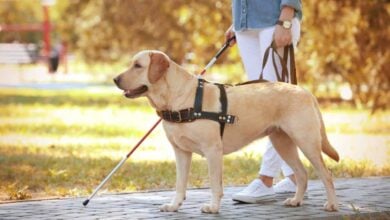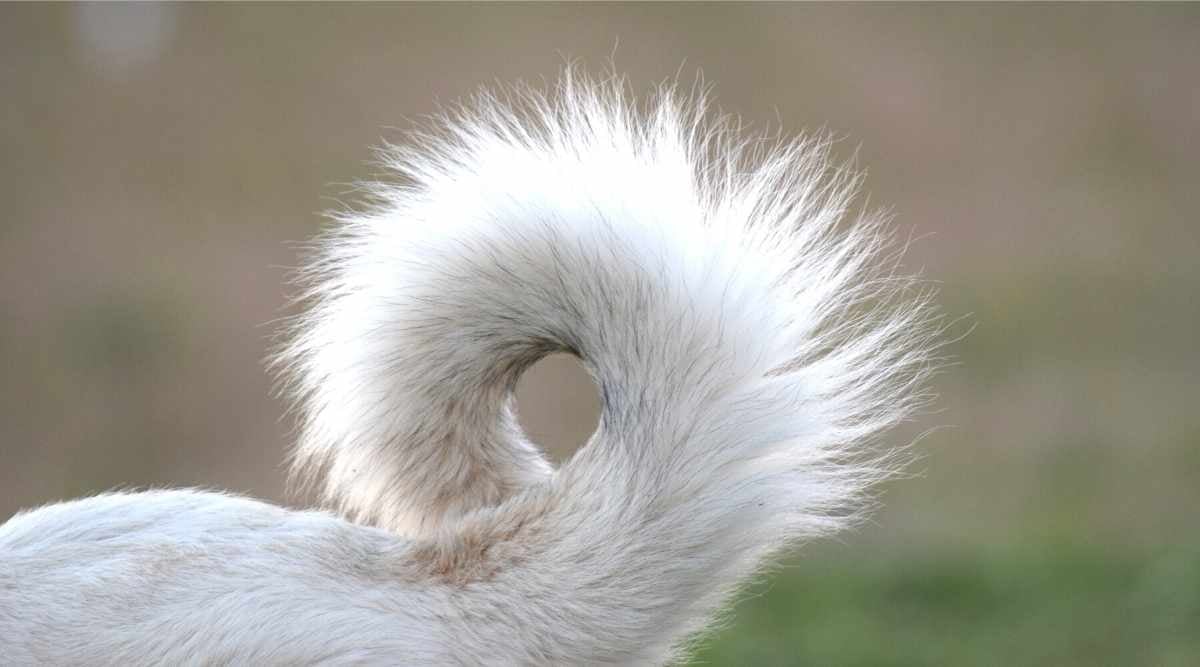Poodle Breed Information: Facts, Traits, Pictures & More
When you purchase through links on our site, we may earn a commission. Here’s how it works.
The Poodle is one of the world’s most intelligent dog breeds, but what makes this dog so lovable? This unique breed includes three sizes: standard, miniature, and toy, and is an excellent choice for people with allergies. Poodles can make some of the most loyal and fun companions. There’s a lot to learn about this unforgettable pup. Let’s get into it.
Table of Contents
Poodle Breed History
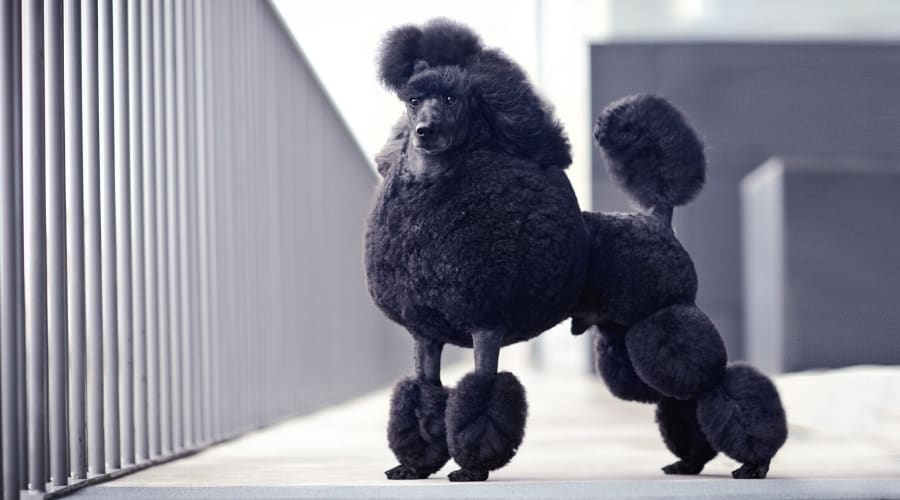
Poodles formerly come from Germany, though they are often associated with France. The German name for a Poodle is pudel, which means “splash in the water.” That refers to the breed’s primary job as a duck retriever.
The Poodle’s heritage is from the Barbet, the French Water Dog, and the Hungarian Water Hound. These water-loving breeds contributed to the “final product” known today as the Poodle.
Three Sizes Of Poodle
A member of the non-sporting group, the Poodle, comes in three official sizes—the Standard, Miniature, and Toy. While weight differs between Poodle classes, height is most important in distinguishing which variety a Poodle belongs to.
Of the three varieties of the Poodle, the standard is the oldest and largest. The Standard Poodle is also known as the Caniche, Barbone, Chien Canne, Grosse Pudel, and the French Poodle.
The Toy and Miniature Poodle breeds were created by selective breeding to produce smaller-sized dogs. They, too, had a job to do: sniff out truffles.
Later in history, Toy and Miniature Poodles became a popular addition to the circus thanks to their supreme intelligence, ability to learn tricks, and love of performing for an enthusiastic audience.
Poodles became especially popular in France, where they quickly gained status as companions to the gentry. King Louis XVI loved Toy Poodles so much that the breed soon became considered the official dog of France.
Newer Poodle Classes
The AKC does not yet recognize two more poodle classes. The Moyan Poodle (also called the Klein Poodle or Medium Poodle) is between Miniature and Standard Poodle sizes.
Breeders are also working to develop a much more miniature Poodle known as the Teacup Poodle. How big do Teacup Poodles get? Teacup Poodles are one of the smallest dog breeds and only get up to 9 inches tall and weigh up to 6 pounds.
The Poodle is now loved worldwide and is one of the most popular breeds of family companion dogs. Of the three sizes, the miniature is most people’s favorite.
Poodle Temperament
Poodles are well known for being very smart – typically ranked in the top two or three most intelligent dog breeds! They can be taught just about anything.
Poodles are friendly and like to be involved with whatever you’re doing. They like other dogs and cats and get along well with children. Poodles are graceful and proud dogs, and when raised in a healthy household, they are a cheerful breed. However, this breed can become very high-strung and experience separation anxiety when not trained and socialized well. A lack of exercise (both physical and mental) can also lead to these types of behaviors.
Like many dogs, Miniature and Toy sizes can be overly excitable if they have nothing to do. This can lead your Poodle to become destructive and loud. Poodles are very successful in performance disciplines, including obedience, agility, flyball, and dock diving. Poodles are intelligent, loyal, and playful. They like to be the center of attention, and they enjoy performing tricks.
They also make excellent rescue dogs and service dogs. Poodles are also a popular breed that gets cross-bred with other dogs such as the Labrador Retriever or Golden Retriever.
Poodle Size & Appearance

The Standard Poodle is the biggest of the three Poodle varieties, standing over 15 inches tall and weighing between 40 and 55 pounds. Miniature Poodles are smaller at over ten inches tall but under 15 inches, weighing between 12 and 15 pounds. Toy Poodles are the smallest of the varieties, measuring ten inches or less at the shoulder and weighing between five and ten pounds. Make sure you have the appropriate bed for your Poodle.
Do not be tempted to buy a “teacup” Poodle! These tiny dogs are often sold as rarities, and although they’re super-cute, like all teacup dogs, they are usually unhealthy and have a relatively short lifespan. If you want a more laid-back Poodle, try a mix like the Cavapoo.
The Poodle has a long and straight muzzle with long ears that hang close to the head. No matter the size, Poodles have a square outline, with elongated necks and straight backs. Though their tails are docked, they are still long enough to wave around joyfully. They have long legs and an athletic build.
Poodle Coat & Colors
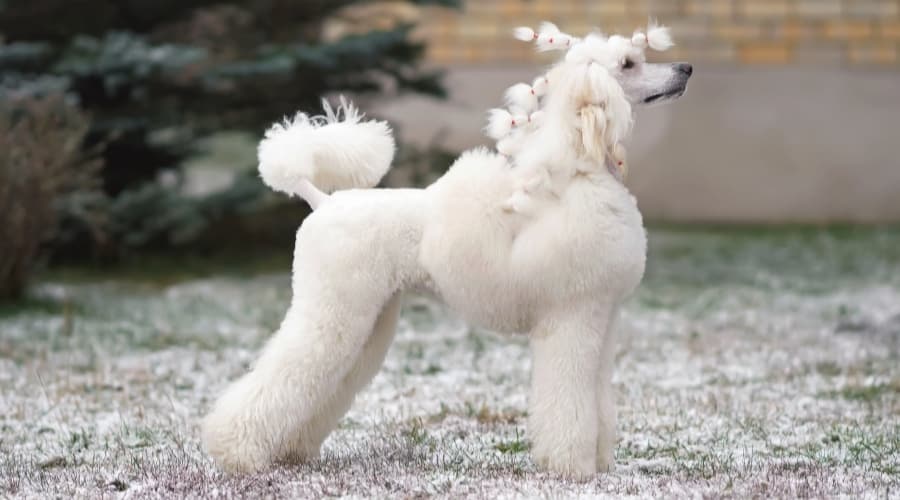
The coat of this breed is perhaps one of its defining characteristics. It’s a single coat and has a corded or curly appearance. They also have a coat of hair, not fur. Their tight, fine, and curly coats do not shed, which makes them great for people suffering from allergies.
Poodles come in many different colors, including:
- Black
- Blue
- Brown
- Apricot
- White
- Silver
- Silver/beige
- Café-au-lait
- Cream
- Red
You can also find “parti-Poodles,” which are two-tone and phantom Poodles that have tan markings similar to those of a Doberman pinscher. That said, the breed standard calls for a solid coat.
Exercise & Living Conditions
The Poodle is a generally calm and inactive dog when indoors, but they must receive sufficient exercise to stay healthy. A daily walk is a must for this dog, but they also need off-leash playtime and more rigorous activities to keep them fit and happy. The smaller Poodle breeds can get away with less exercise, but the larger Standard Poodle must receive more daily exercise. At least 90 minutes each day should be enough to keep your Standard Poodle in good shape, physically and mentally.
If you own a Poodle, you’ll need to devote lots of time to keeping your canine companion entertained. Poodles love swimming and retrieving, so a trip to the park with a ball or a spot of dock diving is a brilliant way of exercising your dog.
Keep Your Poodle Mentally Engaged
Mental exercise is also an essential part of owning any Poodle. As the world’s second most intelligent dog breed, keeping this dog stimulated to avoid problem behavior is crucial. Poodles enjoy retrieving, agility work, watchdog work, learning new tricks, and competing in obedience trials. If you cannot provide these types of activities, combine regular exercise with problem-solving toys and games to encourage psychological growth and exercise. Learn more about the best interactive dog toys because your Poodle needs plenty of them.
While many people jump at the chance to own one of the world’s most intelligent dog breeds, it’s essential to understand the amount of responsibility that this label brings. It’s critical to meet this breed’s needs when considering whether a Poodle is suitable for your household. For more information about this breed, check out The Complete Guide To Poodles.
Poodles are highly social dogs that hate solitude. If you put a Poodle in a kennel or force your pet to live outside, your dog will most likely suffer from separation anxiety. Also, a Poodle’s single, fine coat won’t keep him warm enough in cold weather.
Training Your Poodle
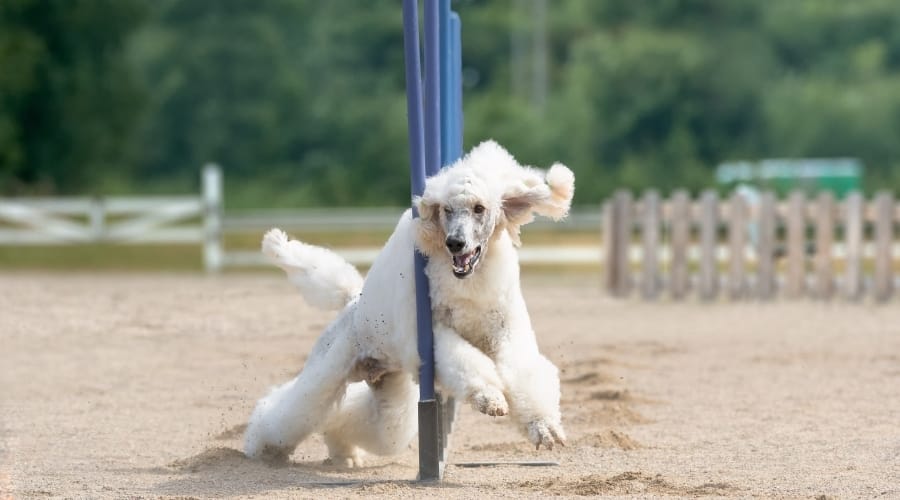
Don’t let the frou-frou haircut fool you! These highly intelligent, trainable pups love a challenge and thrive on learning. Poodles can be trained to take part in obedience, flyball, dock diving, and agility events. Keep your training routines fun and consistent; your Poodle will do well.
It is notable that Poodles are very high jumpers. This can be an excellent skill in agility courses, but you may have to make sure your backyard fence is high enough for your Poodle not to clear.
Poodles don’t thrive as outside dogs or spend a lot of time alone. It’s important to socialize and begin training this breed as soon as possible to ensure a healthy and well-rounded adult dog.
Poodles are particularly sensitive to tone of voice, so Poodle owners must be firm but not harsh. A calm and confident owner is best for the Poodle breed. Poodles are high-energy, so training them with a Poodle-appropriate dog crate is a very good idea.
If you need help training a Poodle, our experts are here to help. We have tips on finding the right trainer and online training resources like Doggy Dan.
Poodle Health Issues
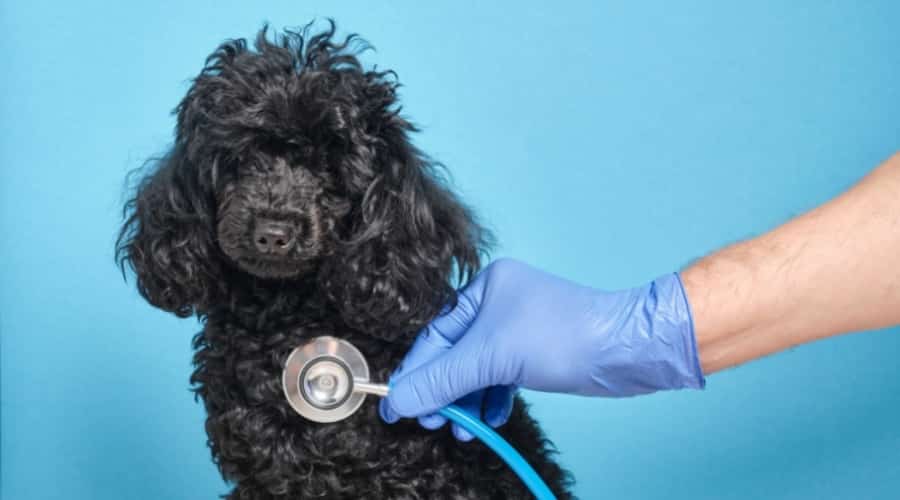
A healthy Poodle can live for between 10 and 18 years, with an average Poodle lifespan of 12 to 15 years. However, Poodles are prone to many illnesses, some of which are hereditary. In general, Standard Poodles tend to be the healthiest of the three sizes.
How Long Do Poodles Live By Size?
- The Standard Poodle lifespan is about 12 years.
- The lifespan of the Miniature Poodle is a bit longer, around 14 years. (Small dogs tend to live longer than larger ones.)
- The Toy Poodle’s lifespan is the longest at about 16 years old. Teacup Poodles live about as long.
7 Common Poodle Health Concerns
Below are some of the most common health conditions affecting all varieties of Poodles. Keep in mind that this is not a complete list. If you have specific health concerns about your dog, please contact your vet.
1. Cushing’s Disease
Cushing’s disease causes the dog’s adrenal glands to produce excess cortisol. Affected animals gain weight, become excessively thirsty and hungry, and suffer from bladder infections. Some previously housetrained dogs begin urinating in the house.
2. Hypothyroidism
Hypothyroidism is another hormonal problem to which Poodles are prone. The condition occurs when the thyroid gland doesn’t produce enough thyroid hormone for the dog’s needs. The result is hair loss, weight gain, weak disease resistance, increased susceptibility to the cold, and excessive hunger. The condition can usually be managed effectively with lifelong medication.
3. Progressive Retinal Atrophy (PRA)
Progressive retinal atrophy (PRA) is a genetic eye condition that typically leads to blindness.
4. Von Willebrand’s Disease
Von Willebrand’s disease is a common genetic bleeding disorder. The condition is caused by a deficiency in the protein that promotes blood clotting. Dogs with Von Willebrand’s disease often experience severe blood loss when they sustain an injury.
5. Canine Bloat
Standard Poodles can be prone to suffering attacks of bloat. Canine bloat is more correctly known as gastric dilation volvulus. The condition occurs when the stomach twists, trapping air inside. Bloat is potentially fatal, and emergency surgery is usually required to correct the problem.
6. Sebaceous Adenitis
Sebaceous adenitis is a skin disease that sometimes affects Standard and Toy Poodles. The condition involves an inflammation of the sebaceous glands in the skin, causing skin problems and hair loss.
7 . Hip Dysplasia
A malformation of the hip joint causes hip dysplasia. The condition is inherited, and its effects can range from minor problems to a life-changing disability. Hip dysplasia can be treated with medication or, in more serious cases, by major surgery.
Other Conditions For Toy Poodles
The following conditions tend to be confined to the smaller Poodle breeds. We recommend looking into pet insurance for your Toy Poodle:
- Luxating patella
- Collapsing trachea
- Dental problems caused by overcrowding
- Legg-Calvé-Perthes disease
Luxating Patella
The patella is the dog’s kneecap. In a healthy joint, the kneecap sits in a groove on the end of the thigh bone, just above the knee. In dogs with luxating patella, the kneecap continually slips out of place, causing intermittent lameness. Luxating patella can be corrected surgically.
Legg-Calvé-Perthes Disease
Legg-Calvé-Perthes disease is also called aseptic or avascular necrosis of the femoral head or ball joint. The condition causes the femoral head to degenerate, leading to the collapse of the hip joint and chronic arthritis. The condition often appears in puppyhood and can be treated surgically.
Poodle Health Certifications
Bearing in mind the number of potential health issues that can affect Poodles, it’s vital that you ask to see the breeder’s written evidence that their breeding animals have been screened for the conditions mentioned above.
The National Breed Club recommends the following health tests:
- PRA Optigen DNA test (Toy and Miniature varieties)
- Hip evaluation (Standard and Miniature varieties)
- Patella evaluation (Toy and Miniature varieties)
- Ophthalmologist evaluation (all varieties)
- OFA thyroid clearance testing (Standard variety)
The Poodle Club of America (PCA) participates in the Canine Health Information Center (CHIC) health database. The database contains details of every dog that’s been health tested, so you can check to see if your puppy’s parents are listed here.
Reputable breeders only use breeding dogs that have been screened and cleared for genetic disease, so their puppies should, in theory, be free from hereditary health conditions.
Pet Insurance Can Help
Caring for a Poodle can be expensive, especially when unexpected medical costs arise. We recommend pet insurance for your Poodle to help offset costs. Learn more about pet insurance and what is covered in our expert-written guide. We also cover ways to save money on pet insurance.
Poodle Nutrition

When you pick up your Poodle puppy, it’s a good idea to ask the breeder what puppy food they recommend. Stick to that food for the first six months of your dog’s life, and then switch your pet onto a high-quality adult recipe commercial food. Make sure to monitor overfeeding.
If you have a Toy Poodle, look for a brand of dry food (kibble) made explicitly for small-breed dogs. Crunching on kibble helps to rid the dog’s teeth of plaque and bacteria that could lead to gingivitis and periodontal disease. That’s especially important in tiny dogs whose teeth are often overcrowded and very close together.
Contact your vet for more advice on what to feed your Poodle or any specific dietary concerns.
Grooming Your Poodle
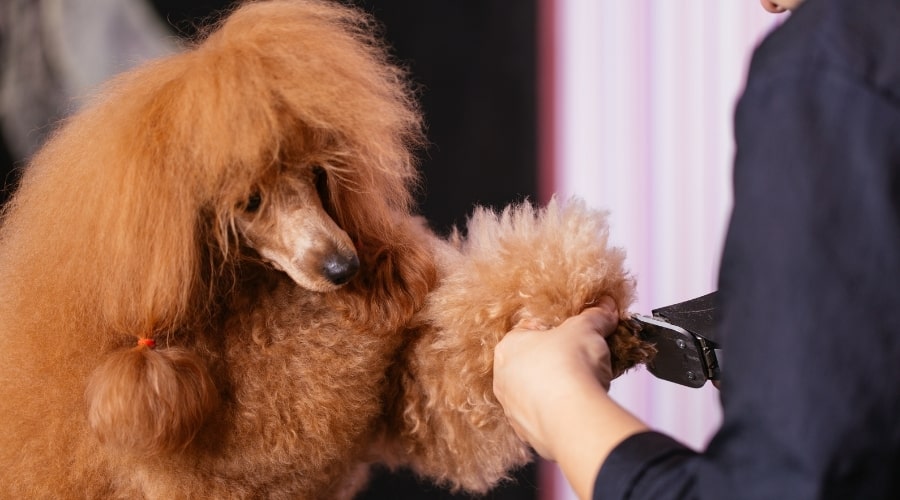
You’ll need to take your Poodle to the groomer every four to six weeks to have his coat clipped. If you don’t have your Poodle clipped regularly, his coat will quickly become a matted mess, which can cause skin infections to develop. Between clippings, you’ll need to brush your Poodle every other day with a soft-bristled brush to prevent the hair from tangling.
All Poodles need special grooming. They need regular baths, and they especially need to be trimmed. Many people take their Poodles to professional groomers. They can make the breed look like a show dog or they can give them a puppy cut, where most of the hair is the same length.
Some owners like to leave their Poodle’s coat to grow out into natural cords. However, most people prefer a neat, clipped look for their dog. A smaller group of owners like to keep their Poodles shaved, which lessens the need for as much daily grooming.
Owners of Toy or Miniature Poodles should brush their dogs’ teeth every day or two with veterinary toothpaste and a toothbrush. This will help prevent bacteria and plaque from forming on the teeth, which could lead to gingivitis (gum disease) and ultimately to periodontal disease.
They are excellent dogs for people who have allergies, most of the time. However, some people are very sensitive and could have a problem even with a dog that is thought to be hypoallergenic. It’s best to check with an allergy doctor before purchasing a new dog.
Breeders & Puppy Costs
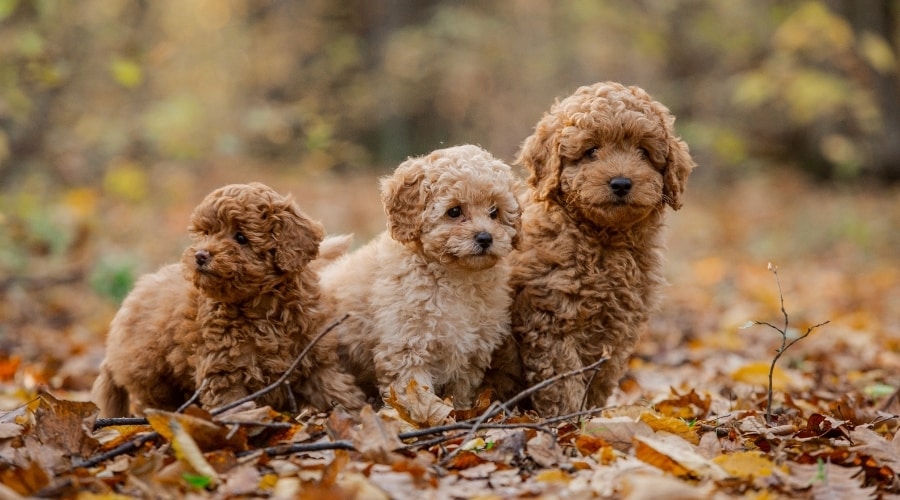
The best place to begin your quest to find the perfect Poodle puppy is the Poodle Club of America’s website. Another good place to search for Poodle breeders is on the American Kennel Club’s website.
Responsible breeders must abide by the PCA’s strict, ethical guidelines that forbid the sale of puppies through auctions, brokers, or commercial dealers such as pet shops. You should also look for a breeder who will give you a written contract that promises to take the dog back at any time during his life if you cannot keep your pet.
Good breeders will have their puppies’ parents’ health screened and cleared of all the severe congenital conditions the Poodle breed can be susceptible to. So, how can you know a good breeder from a dodgy one?
Here are a few warning signs you should be aware of, especially when looking at online advertisements:
- Breeders who have multiple litters for sale
- Breeders with a seemingly unlimited supply of puppies for sale
- Breeders who give you the option to pay for your puppy online with a credit card
- Breeders who offer very cheap puppies “without papers”
The price of a Poodle puppy varies tremendously, depending on where you live, the puppy’s sex, and what kind of show record the pup’s parents have. A well-bred puppy from a reputable breeder would cost around $1,000 to $5,000.
If you’re offered a cheap puppy, he may come from a puppy mill. Never buy a puppy from a puppy mill or farm. Puppy mills are set up purely to produce as many puppies as quickly and cheaply as possible.
Consider A Poodle Mix
There are also many different mixed-breed Poodle pups. Designer dogs have become increasingly popular over the last couple of decades, some of which are toy versions while others are from the standard line of Poodles.
Poodles are also very popular to cross with other breeds because of their fur, which is popular in families that prefer hypoallergenic breeds. Some popular Poodle mixes include the Goldendoodle and Labradoodle, as well as the Bernedoodle, which is a Bernese Mountain Dog Poodle mix. Let’s look at some of our favorite Poodle mixes.
- Mini Goldendoodle Mix
- Sheepdog Poodle Mix
- Poochon
- Miniature Labradoodle
- Siberpoo
- Chi-Poo
- Maltipoo
- Shepadoodle
- Bichon Poodle
- Shih-Poo
Rescues & Shelters
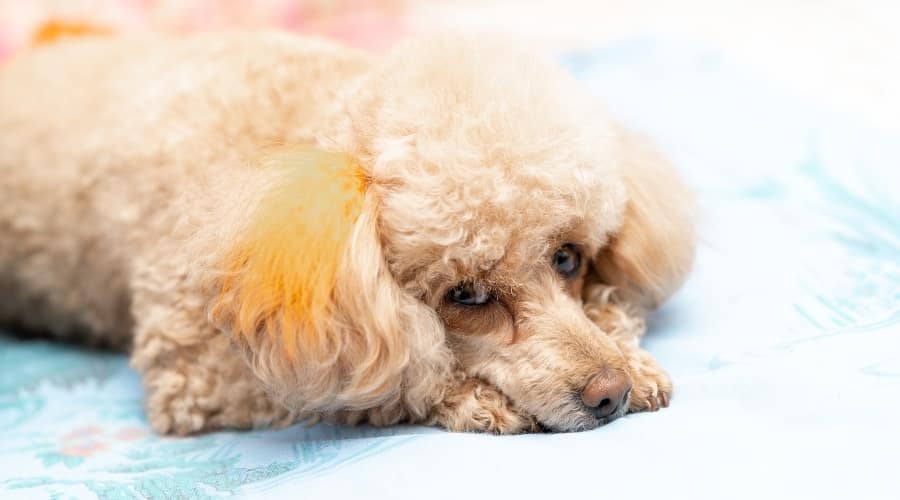
If you don’t want a puppy and prefer to take on an adult dog, you could rehome a Poodle from a rescue shelter. Check out this link to the Poodle Club of America’s Rescue Foundation to see what rescued Poodles are currently up for adoption.
Although adopting a Poodle from a shelter will give you a warm, fuzzy feeling of doing a good deed, you should proceed with caution. Not every dog from a shelter comes with a history, so you could be taking on a whole lot of problems.
If possible, make arrangements with the shelter to take the Poodle on a trial basis for a few weeks to see if he settles into your home. After the trial, you can opt to keep the dog or return him to the shelter if the Poodle proves to be unsuitable for any reason. Learn more about rescues vs breeders in our detailed guide.
What To Expect When You Get A Poodle
This three-minute video from Relax My Dog talks about six things to expect when you get a Poodle.
Frequently Asked Questions
Poodles are a high-maintenance breed, and there is a lot to learn. I’ve answered some of the most often-asked questions below. If I didn’t get yours, let me know in the comments, and I will find the answer.
Are Poodles Aggressive?
This breed is not usually aggressive; however, aggressive behavior can develop without proper training and socialization. The Poodle can be used as a guard dog in some circumstances, depending on the dog’s overall personality, so it’s possible to train them to be aggressive when necessary.
Are Poodles Good With Kids?
When socialized from an early age, the Poodle does very well with other animals and children and is also relatively friendly with strangers. This breed is a very family-oriented dog that thrives on companionship. If you’re away from home all day and cannot provide companionship and exercise for your dog in the form of a mid-day walk, or if you don’t want to hire a dog walker r dog sitter, you may want to reconsider owning a Poodle and look into other dog breeds.
Do Poodles Bark A Lot?
Poodles are average barkers. They do not bark excessively and rarely bark for no reason. Since they are one of the most intelligent breeds, they can be trained easily to reduce barking.
Are Poodles Hypoallergenic?
No. But, since Poodles have hair, not fur, and they’re low shedders, they’re considered low-allergy dogs. While non-shedding or low-shedding dogs produce less hair around your home, no dog breed is truly hypoallergenic. Discover which other dog breeds are low-shedders. If you suspect you may have a dog allergy, you can learn more about its severity by taking this at-home allergy test.
Are You Ready For A Dog?
Bringing home a new dog, regardless of breed, is a big responsibility. Whether you are a first-time owner or have a herd of pups at home, evaluate if you have enough time, energy, and money to support a new dog and be a responsible owner. If you have children in the home, talk to them about their roles and care expectations for the new dog. We’ve got a fun puppy contract that is a great resource.
Why Trust Canine Journal?
Danielle is a dedicated dog owner with over 30 years of experience. She has raised several rescue pups with special medical needs. Along with her lifelong dedication to raising happy, healthy dogs, Danelle is a skilled researcher and writer with a background in education and behavior management. As part of the Canine Journal research team, she works alongside a dedicated group to provide dog parents with the most helpful and accurate information to better their pets’ lives.
